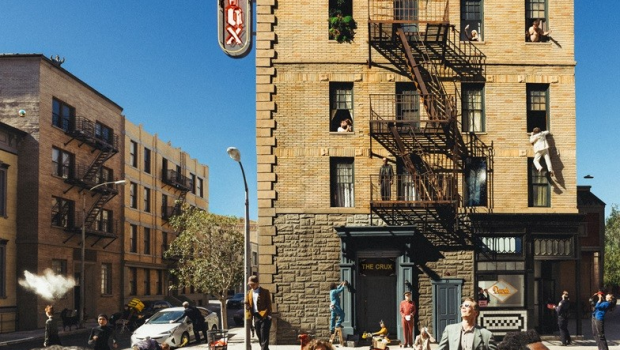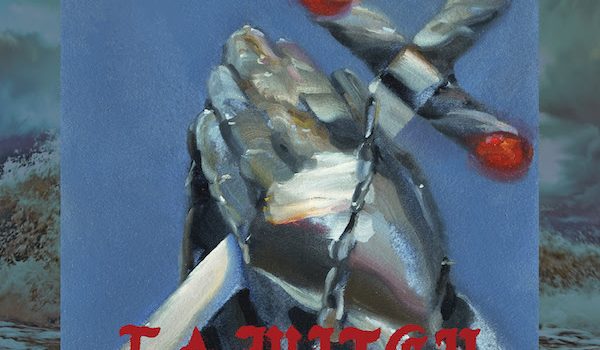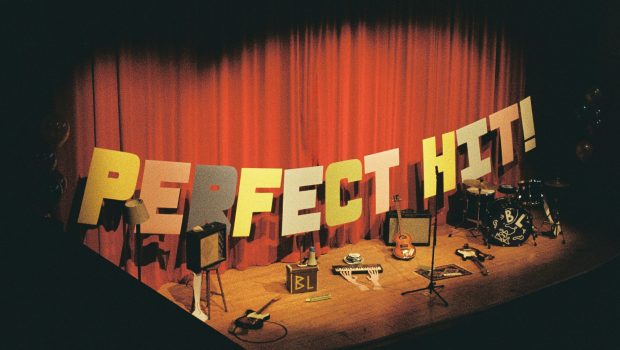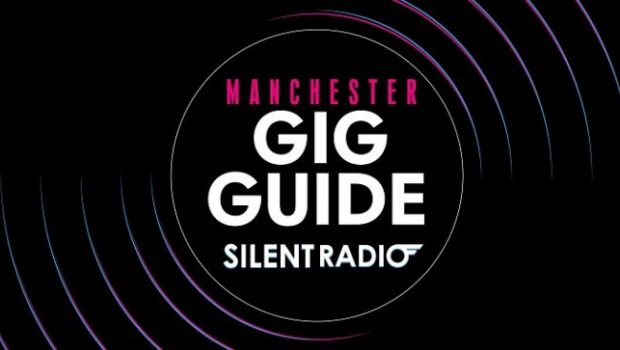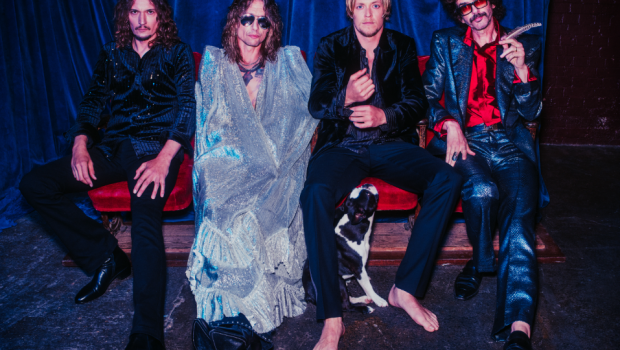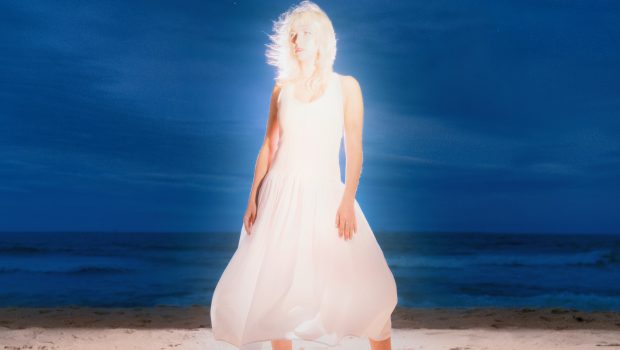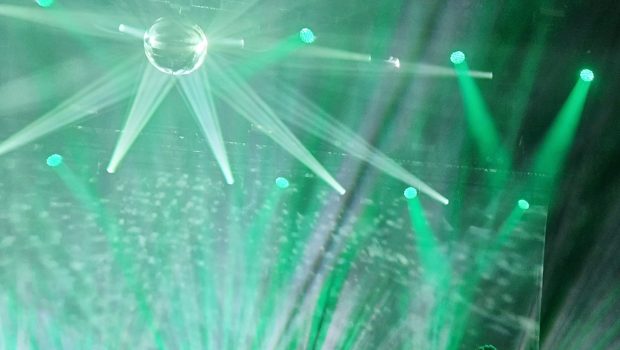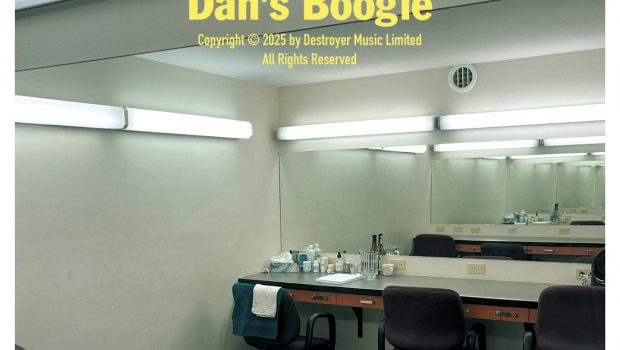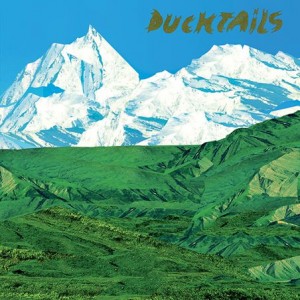 – THE RUBY LOUNGE, MANCHESTER –
– THE RUBY LOUNGE, MANCHESTER –
I’m not overly fond of the Ruby Lounge as a venue at the best of times- it might be that it’s dark and dingy, or the strange design, I can’t put my finger on it, but when I walk in and see about six people in the crowd my heart sinks. My fear that no one’s going to turn out to see this relatively obscure American drone musician is assuaged when I realise I’m actually ridiculously early. I get a drink and peruse some of the records and CDs on display in an enclave with a couple of couches and a table. Then out of the corner of my eye I see Louis Theroux sitting on one of the couches eyeing me with suspicion. As I squint through the dark dingy light, I realise that it’s not actually Louis Theroux but a good humoured American called Mat. Halfway through our conversation I realise that this is actually Mr. Ducktails and now that he’s satisfied that I’m a reasonable sort of chap he asks me to keep an eye on his stuff, while he goes round the corner of the strangely shaped room to watch his mate Ignatz’s set. Ignatz, from what I hear as I watch Ducktails’ merchandise, is a solo bluesy, effects laden act, a bit like John Lee Hooker with lots of reverb, delay and distortion. Nice one Ducktails, you cheeky bastard.
It occurs to me that if I was a kleptomaniac opportunist with a big bag and an Ebay account I could be out of here muttering “see you in hell” under my breath. But I only have a small bag, so I sit thinking of who it is, other than Louis Theroux that Ducktails looks like. He’s one of those people that sort of looks like lots of people- David Byrne, Woody Allen. I think of a joke to tell him if he ever comes back:
Q. What’s the difference between David Byrne and Woody Allen?
A. Ducktails.
Ignatz’s set ends and Ducktails comes back. “I was at the bathroom”, he says.
“must have been some curry”, I think to myself, but don’t say. Nor do I tell him my joke. Not that there’s anything wrong with being compared to David Byrne.
There’s even something distinctly David Byrne-esque about how he moves on stage with his acoustic guitar that makes me suspect he’s watched Stop Making Sense on DVD a few times. It’s not that Ducktails’ music sounds anything like either really (Woody Allen plays Jazz clarinet), he just looks like them. Louis Theroux too. He looks a wee bit like Steve Malkamus from Pavement, but perhaps this association has more to do with the music. There’s a lo-fi aesthetic about Ducktails; a buzzy, muddy, unpolished, rough diamond quality to his particular brand of alt country Americana that is reminiscent of some of Pavement’s music. I don’t know what the name Ducktails is all about. It seems totally arbitrary and stupid. It makes me think of Duck Tales, the kids cartoon. But there’s something in the lo-fi Americana meets Ariel Pink that has a childish sort of innocence, charm and sense of nostalgia about it.
Five minutes later, as in the middle of me going into one about how Spanish people find it hard to differentiate between Northern Irish and east coast American accents (honestly, I think that’s what I was saying), he remembers he has to be on stage and rushes off. Either that or, more likely, he’d had enough of my jive.
Ducktails’ set begins with a lovely plinky-plonky synth pattern looped. Like a lot of one-man band shows I’ve seen recently (Gruff Rhys, James Blake), the live performance involves a lot of looping and sequencing. Synth, guitar chords and runs, and vocal refrains are looped live and layered on top of each other over pre-recorded samples and beats. The tracks that I’d heard had led me to expect something altogether more instrumental and droney. In my mind I’d always grouped him in the same box as Olde English Spelling Bee label-mates Forest Swords or James Ferraro, and the label itself, to me, represented a new generation of shoe-gaze influenced by early 90s British bands like Slowdive, Seefeel, The Telescopes and MBV, but Ducktails actually has as much in common with label mate alt country singer Julian Lynch.
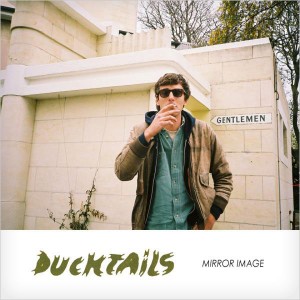 I was surprised at how much of the set was made up of actual songs. In the last few days I’ve re-listened to music by other artists on the label, like another brilliant band with a terrible name, Rangers, and realise that it isn’t a roster for a new generation of shoe-gaze, drone acts, as much as a label where the artists seem to share a common set of lo-fi, DIY production practices. Whether it’s the haunting alt country of Julian Lynch or the woozy disco pop of Autre Ne Veut, what they all seem to share is the shunning of digital precision. The result is music that can sound less shiny (Ducktails’ album sounded so fuzzy and badly mastered that I thought there was something wrong with my speakers) but altogether warmer than music made with software packages. Like Thurston Moore of Sonic Youth, Ducktails likes cassettes- he only records onto cassette so that he doesn’t have to deal with a computer, all he uses is cassette dubbers, he says that he likes this because he can get his music recorded really quickly and he “likes the idea of everything being as raw-sounding as possible, with nothing covering up the sound”.
I was surprised at how much of the set was made up of actual songs. In the last few days I’ve re-listened to music by other artists on the label, like another brilliant band with a terrible name, Rangers, and realise that it isn’t a roster for a new generation of shoe-gaze, drone acts, as much as a label where the artists seem to share a common set of lo-fi, DIY production practices. Whether it’s the haunting alt country of Julian Lynch or the woozy disco pop of Autre Ne Veut, what they all seem to share is the shunning of digital precision. The result is music that can sound less shiny (Ducktails’ album sounded so fuzzy and badly mastered that I thought there was something wrong with my speakers) but altogether warmer than music made with software packages. Like Thurston Moore of Sonic Youth, Ducktails likes cassettes- he only records onto cassette so that he doesn’t have to deal with a computer, all he uses is cassette dubbers, he says that he likes this because he can get his music recorded really quickly and he “likes the idea of everything being as raw-sounding as possible, with nothing covering up the sound”.
Though on occasion during the gig, you wish there was something to cover up the sound, or a bit of X-Factor auto-tuning at least. This is because Ducktails can’t really sing for toffee. At times it’s as if he suffers from a form of musical aphasia; like a stroke victim who wants to say “could you shut that door”, but instead it comes out “I would like to play a game of football”, you sense that whatever brilliant melody is in his head is coming out a bit different. But then again, when did an inability to sing stand in the way of the making good music? It hasn’t harmed the careers of Dylan, Ian Brown, Tom Waits, Shaun Ryder, Shane McGowan etc. In fact that’s often the point. With Ducktails, that’s certainly the point.
There’s a kid-like charm about his lack of vocal ability. Songs like ‘Hamilton Road’ and ‘In The Swing’ still glisten with a laid-back, sitting on a porch swing chair, summery feel good groove, and the droney numbers like ‘Arcade Shift’ and ‘Porch Projector’ are cinematic in their looping of guitar runs, synth and noise. At times he beats time on the wood of his guitar and loops it as beat. There’s an allure about the lo-fi rawness of the sound. There’s a magic about how he darts about the stage like a geeky, enthusiastic ten year-old that’s just dying to show you something awesome. And there’s a charisma about the man in person, who despite having very little sleep since his previous gig in Copenhagen is still more than happy to talk about whatever nonsense some random (me) wants to talk about after the gig. He still charged me for a record though.


